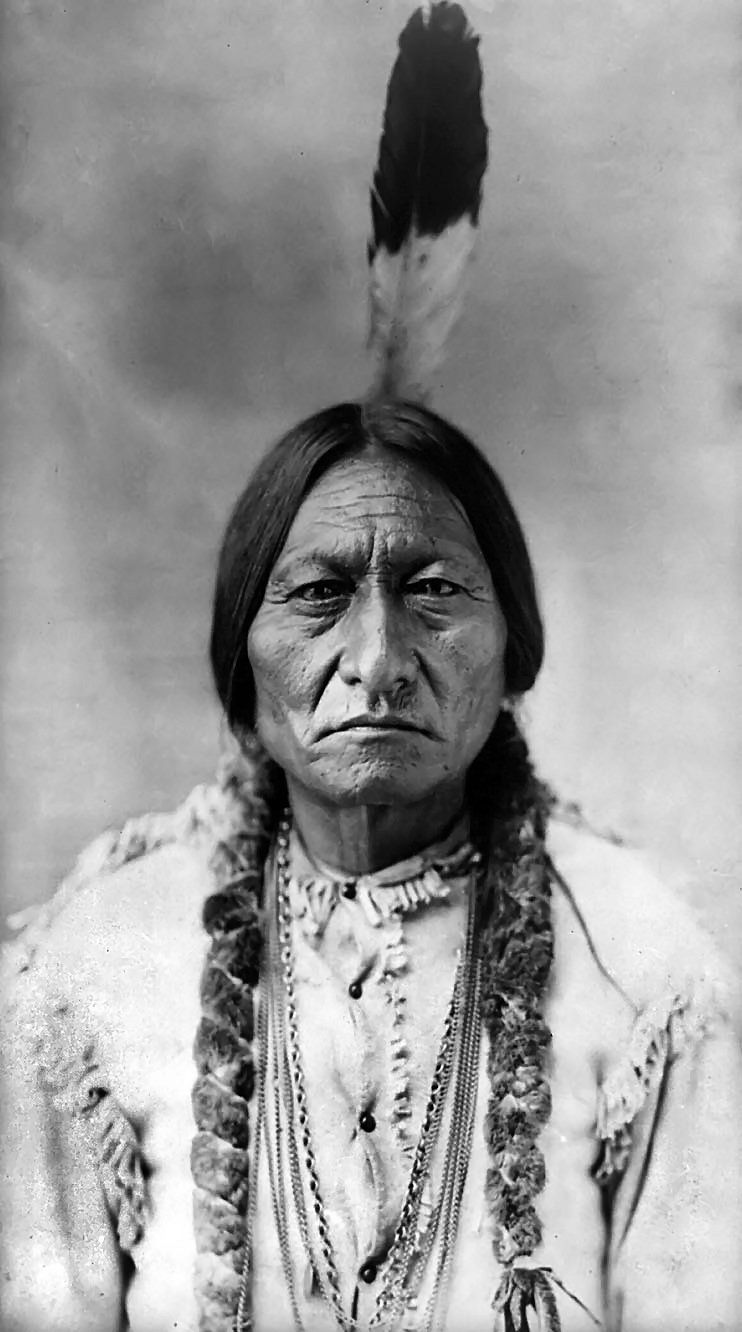GoodReads https://www.goodreads.com/author/quotes/5712889.Sitting_Bull
Attributed quotes
Touro Sentado: Frases em inglês
“You come here to tell us lies, but we don't want to hear them.”
As recorded by reporters covering a speech made by Sitting Bull to U.S. military officers at a conference between the military and the Sioux who had retreated to Canada. Published in Utley, Robert M. The Lance and the Shield. New York: Henry Holt and Co., 1993. p. 196.
Contexto: You come here to tell us lies, but we don't want to hear them. If we told you more, you would have paid no attention. That is all I have to say.
Recorded by Charles Larpenteur at Fort Union in 1867. Published in Utley, Robert M. The Lance and the Shield. New York: Henry Holt and Co., 1993. p. 73.
Also told to Charles Larpenteur at Fort Union in 1867. Published in Utley, Robert M. The Lance and the Shield. New York: Henry Holt and Co., 1993. p. 73.
Sitting Bull: The Collected Speeches, p. 75
Sourced quotes
Quoted in Vine Deloria, God Is Red: A Native View of Religion. Golden, Colo: Fulcrum Pub, 2003, cited to Virginia Armstrong, I have spoken; American history through the voices of the Indians. Chicago, Sage Books, 1971.
GoodReads https://www.goodreads.com/author/quotes/5712889.Sitting_Bull
Attributed quotes
“The white man knows how to make everything, but he does not know how to distribute it.”
GoodReads https://www.goodreads.com/author/quotes/5712889.Sitting_Bull
Attributed quotes
“I hardly sustain myself beneath the weight of white men's blood that I have shed.”
Recorded by the Jesuit priest Pierre-Jean De Smet after a council with Sitting Bull on June 19, 1868. Published in Utley, Robert M. The Lance and the Shield. New York: Henry Holt and Co., 1993. p. 79-80.
Contexto: I hardly sustain myself beneath the weight of white men's blood that I have shed. The whites provoked the war; their injustices, their indignities to our families, the cruel, unheard of and wholly unprovoked massacre at Fort Lyon … shook all the veins which bind and support me. I rose, tomahawk in hand, and I have done all the hurt to the whites that I could.
Recorded by James M. Walsh, inspector in the Northwest Territory of the Royal Canadian Mounted Police, at a conference with Sitting Bull on March 23, 1879. Published in Utley, Robert M. The Lance and the Shield. New York: Henry Holt and Co., 1993. p. 206.
GoodReads https://www.goodreads.com/author/quotes/5712889.Sitting_Bull
Attributed quotes
“I am nothing, neither a chief nor a soldier.”
Recorded by a reporter after Sitting Bull's retreat to Canada after being defeated in the Black Hills War, originally published in the New York Herald on November 16, 1877. Published in Utley, Robert M. The Lance and the Shield. New York: Henry Holt and Co., 1993. p. 190.
“This is a good day to die. Follow me!”
Rallying cry at the Battle of the Little Bighorn (25 June 1876), quoted in Campaigns of General Custer in the North-west by Judson Elliott Walker
